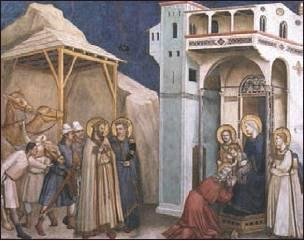Epiphany of the 12th Night
Throughout the years Christmas music has made many changes. These changes range from Winter Solstice celebrations to Frosty the Snowman. Clemson University’s leadership program guide for the Songs …
This item is available in full to subscribers.
Subscribe to continue reading. Already a subscriber? Sign in
Get 50% of all subscriptions for a limited time. Subscribe today.
Please log in to continueNeed an account?
|
Epiphany of the 12th Night
Throughout the years Christmas music has made many changes. These changes range from Winter Solstice celebrations to Frosty the Snowman. Clemson University’s leadership program guide for the Songs of Christmas provides more information.
Legends tells us some of these songs have hidden meaning. The claim is the Twelve Days of Christmas was a teaching tool for Catholic children. No evidence has been produced to verify this. So rest easy all you conspiracy theorists. There is no special meaning hidden in these symbols. Christians, Catholic and Protestant alike, can sing without fear of sharing forbidden secrets.
These are words of hope for a world to come meant to be shared with everyone who has ears to hear.
The Twelve Days of Christmas refers to the days beginning on Christmas Day to Epiphany on January 6th. Epiphany is the day that celebrates the visit of the Wise Men to the Christ Child.
True love in verse one symbolizes God who gave his gift of true love to anyone who accepts it. The Twelve Days offer 364 gifts in all.
Another Christmas song of interest that is O Little Town of Bethlehem. This comes from the year 1865. The Rev. Phillip Brooks, a Harvard-educated Episcopalian minister, rode on horseback from Jerusalem to Bethlehem. He participated in the five-hour-long Christmas Eve celebration of the Church of the Nativity. Songs of joy were sung at this celebration.
On his return home the Rev. Brooks reflected on the experience. He was inspired to pen O Little Town of Bethlehem which still offers inspiration in our modern era.
Another song, Silent Night, was also written by a man of the cloth. A priest, Father Joseph Mohr of Austria, wrote the song in 1818. The first musical accompaniment for the guitar was added by his friend Franz Gruber. The song was for a Christmas service at St. Nicholas Church in Oberndorf, Salzburg. Several years later Gruber wrote an arrangement for the organ.
Many of South Carolina’s Lutherans came to this country from Salzburg in the early part of the 1700s. There was a colony of Lutheran Austrians near Savanah, Georgia. They were called the Salzburgers and founded Jerusalem Church at Rincon, Ga. This is the oldest Lutheran church in the US with an active congregation.
Other items that may interest you







Comments
No comments on this item Please log in to comment by clicking here